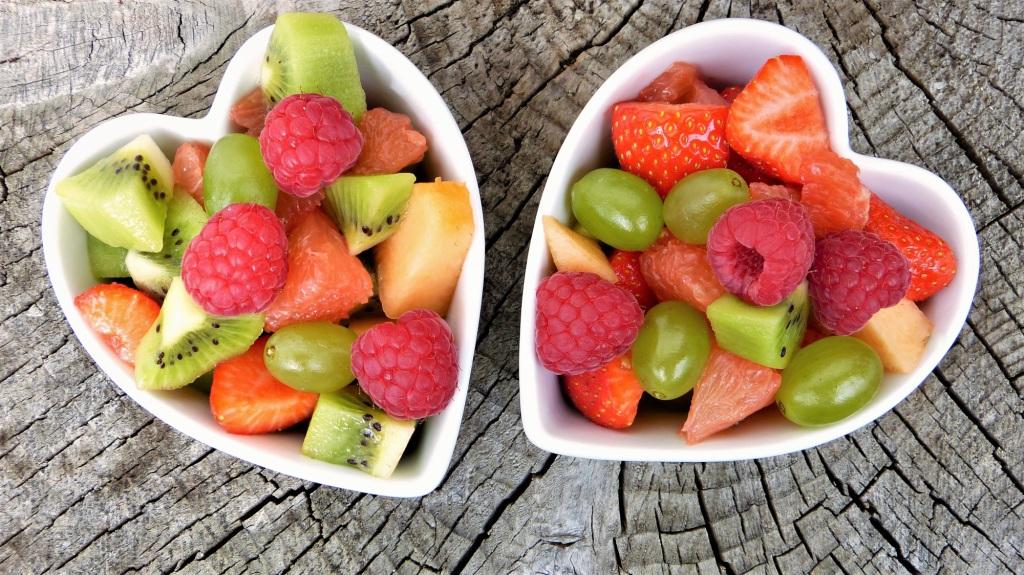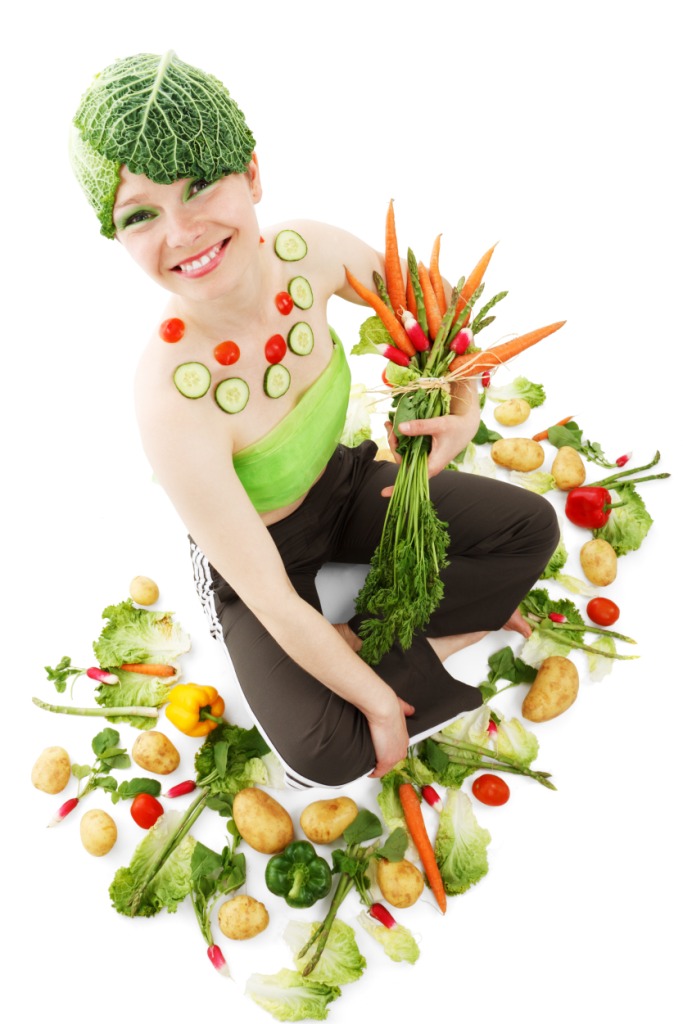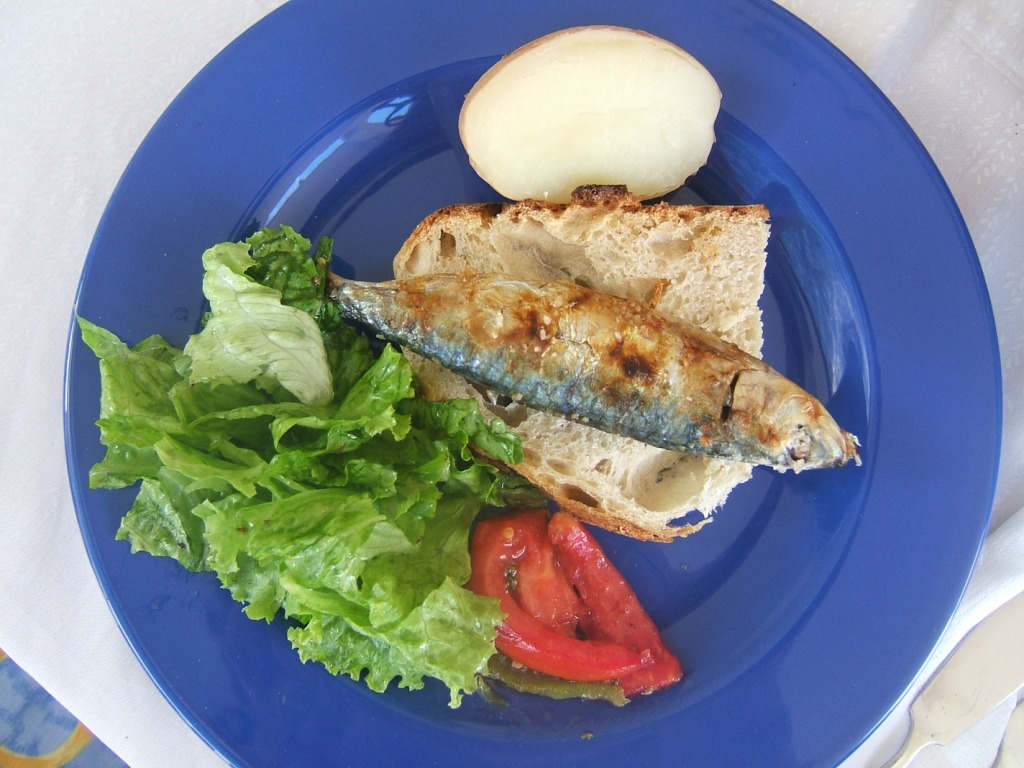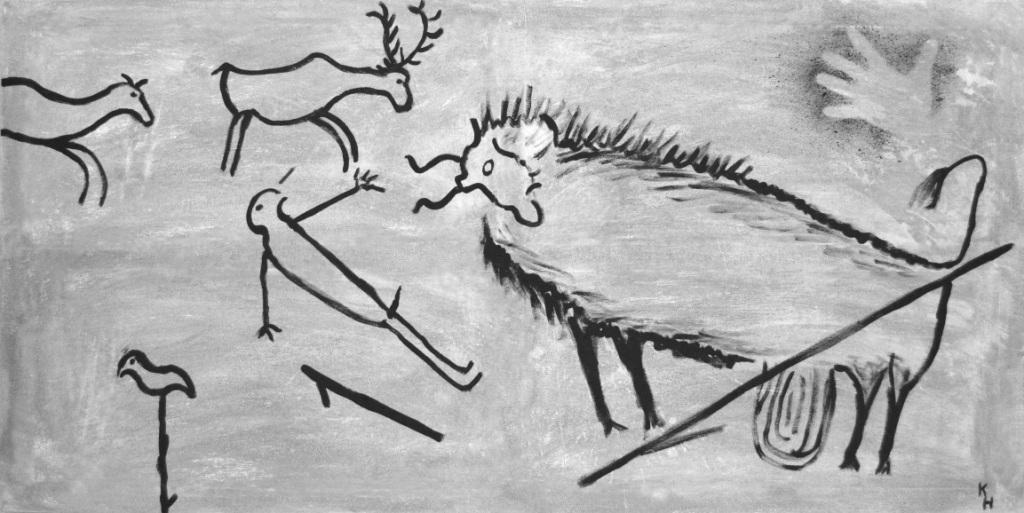Contact Bruce
About
PWP
Links
Photo
Credits:-
Sun graphic
(DavidRockDesign,
Pixabay)
Sun Diet
(cocoparisienne,
Pixabay)
Fruit Diet
(silviarita,
Pixabay)
Vegan Diet Woman
(PublicDomain
Pictures, Pixabay)
Vegetarian Diet
(RitaE,
Pixabay)
Fish Diet
(Kolibrik,
Pixabay)
Insects Diet
(kai62,
Pixabay)
Meat Burger
(Meditations,
Pixabay)
Lascaux cave painting
(KlausHausmann,
Pixabay)
The Honorable Harvest screenshot
(Robin Kimmerer, YouTube; fair use, educational)
Gratitude Diet
(silviarita, Pixabay)
CO2e saved by diet
(CarbonBrief, via The
Conversation)
Spider
(Prawny, Morguefile)
Potato Cannibals
(Alexas_Fotos, Pixabay)
|
 The
Future
of Diet The
Future
of Diet
At
the pinnacle and unlikely at our present state of
evolution is no food (also called inedia
or breatharianism). This
is where we live off the non-physical life force or prana in the air.
Prana’s main
source is the sun. Anyone loudly claiming to do this is likely
fraudulent and
aiming for financial gain and/or guru
glory. Also, it is probably not
something willed, and is more likely to occur naturally, in an unforced
way. Otherwise
it is dangerous, even fatal. Anyway, this is how spiritual researcher Lilla Bek
sees it in terms of the colours of our subtle energy system:
“When
we reach a colour such as gold, we begin to raise
the chakra system to a higher level of vibrations. If gold appears in
the
abdomen, it means that the area is working on a high energy. The
coarseness
will have disappeared, and, in theory, people with a lot of gold should
need
very little food. I think, in time, we will go back to being able to
exist just
on prana - energy from the air. We could, if we knew how to, live off
energies
around us - and I think that is where our future lies.” (Navel Chakra,
track #2, 7m27s; excerpt)
Next
best is fruitarian.
No plants were harmed in this diet, as fruits naturally detach.
Indeed, plants that produce fruit want their fruit to be eaten! By animals. They evolved like this. Seed
dispersal is how plants survive and thrive. Ideally, you need to defecate on the ground afterwards (or similar), to maintain this cycle!
This
diet may
not be so easy if you live in cooler climates and care needs to be
taken to receive
adequate nutrients.
Humans
themselves are 'eaten' in this way, as O.M.
Aïvanhov explains:
“Every
day we eat. But don’t be shocked if I tell you that we are
also food for other
entities. The entities of light take our good thoughts, our good
feelings, and
everything in us that is inspired by wisdom and love, and feed on it.
They see
us as trees producing flowers and fruit. When they come to pick them,
they
don’t break our branches, but water us and tend us, so that
we may produce even
more succulent fruit. But there are also dark entities, demons. They
too need
food, and they seek out human beings whose evil intentions and feelings
are
exquisite food for them; and so they rob them of all their energy,
leaving them
exhausted. There is nothing worse than being devoured by dark spirits,
and
nothing is more beneficial than serving as food for heavenly entities.
And so
initiates tell us that we should offer ourselves up each day to the
Lord for
him to feed on us. This image serves to show us that
humankind’s spiritual
ideal is to be absorbed by the Lord so as to dwell in him.”

Then
comes vegan.
No animals were harmed nor their products stolen.
You
can remove 90% of a plant without killing
it. (The
Guardian, posted 5 April 2020, accessed 23 November 2020).
Although
plants do
feel pain,
we are talking about minimising obvious-to-humans type pain. Consider
the words of Wooden Leg, a Cheyenne (Native
American Wisdom anthology, Alan Jacobs, p.22):
"The
old Indian teaching
was that it is wrong to tear loose from its place on the earth anything
that
may be growing there. It may be cut off, but it should not be uprooted.
The
trees and the grass have spirits. Whenever one of such growths may be
destroyed
by some good Indian, his act is done in sadness and with a prayer for
forgiveness because of his necessities..."
Then
comes vegetarian.
No animals are killed. The issue that I struggled most in this diet is
the
attachment trauma involved with dairy, when calves are separated from
their
mothers.
Then
perhaps there is pescatarian and/or
insect-eater.
Fish/seafood and/or insects are added to a vegetarian diet. Both these
diets
are probably considered by many to be less pain-causing than a diet
that kills species
similar to us (i.e. other mammals).
Additionally:-
- The
pescatarian
diet has
been linked to longevity, although these days our oceans are so
polluted with plastic
and
other poisons.
- The
insect-eater diet could be a great way to feed a
very
populated world. Two billion people already eat insects! See here,
here,
here,
here,
here,
here.
Then
there is meat-eating,
usually with cultural constraints. Westerners probably find eating pets
like dogs
and horses
disgusting, whilst Asians
have
eaten dogs for centuries.
For
some, survival requires meat
eating,
like the Inuit
winter
diet.
Nowadays, cannibalism - eating another of the same species - is seen as taboo by most, although it has been a last resort in some
survival
situations. It may also be practised by sadhus
to show God is in all.
Eating
placenta after birth helps contract the uterus, prevents
haemorrhage, stabilises, aids breastfeeding, reduces postpartum
depression, brings strength, creates
positivity. All mammals do
it, even herbivores.
Then there is slaughter-free
meat
made in the laboratory from cells of living animals. But it can still
use dubious animal ingredients like unborn calf blood. It also
perpetuates a need for meat, makes us reliant
on tech and corporations. Nevertheless, it may be useful for feeding
cats and dogs, if you are unsatisfied with vegan
alternatives.
Today,
meat and fish eating is a major driver of biodiversity collapse (BBC,
posted and accessed 6 May 2019).
We threaten
the extinction of a million species. 70%
of agriculture is related to meat production.
Such land use = biodiversity collapse .
Biodiversity collapse = human extinction. Do we want this? If no, stop
eating meat!
Mention needs to be made of the difference in approach
to hunting by indigenous hunters versus modern hunters, where the
former
generally approach the kill with respect and gratitude to the hunted,
whilst
the latter plunder with arrogance, self-aggrandisement and disregard
for nature.
So, if you are going to eat meat - or anything really - it is suggested
you practise some spiritual
respect to nature (e.g. see here, here).
The Honorable Harvest is from The Teachings of Grass of the Potawatomi, a Native American people
(See Robin Wall Kimmerer, YouTube, 2014, 12m45→; screenshot is ~17m22s)
Whatever
you choose, let us do our best?
We minimise pain.
Let us be thankful for
our food.
Resources
Farming
- GMWatch
[Independent organisation countering the enormous political
power and propaganda of the GMO industry and its supporters].
- Ecological
Farming - The seven principles of a food system that has people at its
heart (Greenpeace, 2015).
- The
miracle method for sustainable rice – and bigger harvests
(John Vidal, The Guardian, 2019)
[The System of Rice Intensification (SRI): increases yield, income;
decreases use of seed, water and chemicals; decreases methane
emissions.].
- What
is regenerative agriculture and can it feed the world? (Neil
Simon, XR, 2021).
- Mark
Bittman’s warning: the true costs of our cheap food and the
American diet (The Guardian, 2021).
- Are
we eating ourselves to extinction? (Dan Saladino,
The Guardian, 2021)
[We use so few varieties = extremely risky, due to diseases,
pests, climate extremes. An individual human diet even a few
thousand years ago was far richer in diversity than the one most of us
eat today. Diversity is essential for our future.].
- The
secret world beneath our feet is mind-blowing – and the key
to our planet’s future (George Monbiot,
The Guardian, 2022).
- Regenesis
review: Farming is killing the planet but we can stop it
(Rowan Hooper, New Scientist, 2022)
[George Monbiot's book tells us that farming is the most destructive
human activity ever to have blighted the Earth. Our food systems are
helping to destroy the planet. Can we transform them in time? Also see here.].
- The
farmers restoring Hawaii’s ancient food forests that once fed
an island (Nina Lakhani, The
Guardian, 2022) [The future is the past! "We
believe that land is the chief, the people its servants." (Kaipo
Kekona)].
- Are
indoor vertical farms really ‘future-proofing
agriculture’? (Victoria Namkung, The
Guardian, 2022)
[Bypasses many farming problems but seems to have massive energy costs.
Perhaps as part of a diverse farming system, for food security?].
Veganism
Pets
Transforming
Diet
- Reasons for Becoming
Vegetarian/Vegan (PWP).
- Diet for a Small Planet
book by Frances Moore Lappé [This 1971 vegetarian book was
groundbreaking in
arguing that world hunger is not caused by global food scarcity, but
rather by ineffective food policy].
- 'Flexitarian'
diets key to feeding people in a warming world (BBC,
2018).
- New
plant-focused diet would ‘transform’
planet’s future, say scientists (The
Guardian, 2019).
- The diet
to save lives, the planet and feed us all? (BBC,
2019) ['Planetary Health Diet', a flexitarian diet].
- Nature
crisis: Humans 'threaten 1m species with extinction' (BBC,
2019).
- Microbes
and solar power ‘could produce 10 times more food than
plants’ (The Guardian, 2021)
[The system would also have very little impact on the environment, in
contrast to livestock farming. Needs so much less sun, land,
water, fertiliser. Splits food production from land use = much
land available for rewilding.].
- Which
diet will help save our planet: climatarian, flexitarian, vegetarian or
vegan? (Mark Maslin, The Conversation, 2022).
 Graph showing the CO2-equivalent
(CO2e) pollution saved of various diets.
This is if everyone was on that specific diet.
The x-axis
is the CO2e of pollution saved by the diet, in
gigatonnes per year.
The y-axis
has 10 different diets. Veganism is the least polluting.
(CarbonBrief, cited by Mark Maslin, The
Conversation, posted 12, accessed 14 August 2022)
Transforming
Diet - Foods with Super Potential
- Food
'made from air' could compete with soya (BBC,
2020) [Microbial protein].
- The
rice of the sea: how a tiny grain could change the way humanity eats
(The Guardian, 2021) [Eelgrass. 50% more protein
than rice per grain, gluten-free,
high in omega-6 & -9 fatty acids. No fertiliser or antibiotics
needed. Captures carbon 35x faster than tropical rainforests.].
- ‘It
could feed the world’: amaranth, a health trend 8,000 years
old that survived colonization (The
Guardian, 2021)
[It is a complete protein with all nine essential amino acids; also
high in manganese, magnesium, phosphorus, iron, antioxidants. It can be
grown widely. It is a route to self-sufficiency, free from
capitalism/ pandemic/climate emergencies.].
- ‘It’s
a miracle crop’: the pioneers pushing the powers of seaweed
(The Guardian, 2021)
[Kelp as a food (e.g. Kelp Burger). It also cleans water, absorbs
carbon, is sustainable, is an alternative to chemical fertilisers,
doesn’t use fresh water, doesn’t use land,
doesn’t
need fertilizer! For thousands of years it has been eaten and used on
crops by coastal communities worldwide. Also see here.].
- Sea-farmed
supercrop: how seaweed could transform the way we live (The
Guardian, 2022)
[High-protein (30%) like meat and soya. More sustainable than soya, as
sea lettuce doesn’t draw on scarce resources of land and
fresh
water.].
- ‘The
tuber man of Kerala’ on a quest to champion India’s
rare and indigenous crops (The Guardian, 2022)
[All hail the hardy tuber! It resists global weirding.].
- I
used to take cassava for granted – but it could help to wean
the world off wheat (Chiedozie Egesi, The
Guardian, 2022)
[The world is dependent on wheat, but it is vulnerable to geopolitical
and climate crises. Cassava can produce a good harvest in hot, dry
conditions that kill off other crops. South American in
origin, it
is Africa's
most reliable crop and one of the world’s most sustainable. Processing (soaking,
cooking, fermentation, etc.) is required to remove toxicity.].
- ‘Fonio
just grows naturally’: could ancient indigenous crops ensure
food security for Africa? (Kaamil Ahmed, The
Guardian, 2022)
[Fonio is one of Africa’s oldest cultivated grains. It only
takes
days to germinate and can be harvested in as little as six weeks.
Though laborious, it is simple and reliable. No need to add anything.
It can be grown in rough, dry soil. It is tasty, nutritious. It can be
stored far longer than other grains. Also see here.].
- Jabal: the new wheat scientists say can withstand extreme heat and drought (The Guardian, 2022).
- Seaweed could avert food crisis caused by extreme weather (The Guardian, 2023) [Ulva as a staple crop via undersea farming – once people acquire a taste for it].
- New knowledge of ancient grain: Researchers map complete millet genome to help with food security (New York University, Phys.org, 2023) [Old and adaptable].
- UK scientists could make poisonous grass pea a valuable food crop (The Guardian, 2023) [A non-toxic variety of the protein-rich and very hardy plant?].
- Inside Iceland's futuristic farm growing algae for food (BBC, 2025).
Transforming
Diet - Meat & Dairy
- Reboot Food (WePlanet) [Precision Fermentation to the rescue!!].
- Avoiding
meat and dairy is ‘single biggest way’ to reduce
your impact on Earth (The
Guardian, 2018) [provides
just 18% of calories but uses 83% of farmland].
- How to
start eating 'less but better' meat and dairy (Hubbub,
YouTube, 2018) [10m4s].
- Huge
reduction in meat-eating ‘essential’ to avoid
climate breakdown (The
Guardian, 2018) [up
to 90% reduction needed in Rich World].
- Would
you eat slaughter-free meat? (BBC, 2018).
- Should there
be a tax on red meat? (BBC, 2018).
- Most
'meat' in 2040 will not come from dead animals, says report (The
Guardian, 2019).
- Pea power: Can the humble crop save the planet? (BBC, 2019) [Environmental groups support plant-based proteins, hoping that their rise will curb meat consumption].
- No-kill,
lab-grown meat to go on sale for first time (The
Guardian, 2020).
- What's
the point of lab-grown meat when we can simply eat more vegetables?
(Jenny
Kleeman, The Guardian, 2020) [She argues
that we need to avoid dependency on
tech and corporations. Just move to a plant-based diet already!].
- Could
lab-grown meat help tackle climate change? (BBC,
2021) [Lab meat tech may involve high energy use, but
it's still way better environmentally].
- The
low-hanging fruit in the climate battle? Cutting down on meat
(Gaby Hinsliff, The Guardian, 2021)
[Eating fewer animal products and less dairy would make a huge
difference to carbon emissions].
- Man
v food: is lab-grown meat really going to solve our nasty agriculture
problem? (Jan Dutkiewicz & Gabriel N Rosenberg,
The Guardian, 2021) [It
is more ethical and more environmentally friendly. So, it may help a
transition to veganism. But healthwise, it's ultra-processed = bad.].
- A
happy food chain: can mussel farming restore the UK’s damaged
coastline? (The Guardian, 2022)
[This creates a healthy habitat from big fish to molluscs. It could
offer a sustainable alternative to meat or fish.].
- Replace animal farms with micro-organism tanks, say campaigners (The Guardian, 2022)
[Enough protein to feed the entire world could be produced on an area
of land smaller than London if we replace animal farming with factories
producing micro-organisms. Precision fermentation creates biologically
identical animal proteins using genetically engineered micro-organisms
fermented in tanks.].
- Embrace what may be the most important green technology ever. It could save us all (George Monbiot, The Guardian, 2022) [Precision Fermentation. End farming reliance.].
- ‘Let them eat lentils’ won’t save us from animal farming – we must embrace meat substitutes (George Monbiot, The Guardian, 2023) [What to do about the soaring global demand for animal products, and its devastating impacts?].
- The food revolution that will change everything! (WePlanet, YouTube, 2024) [Precision fermentation explained in a 4m34s video].
- ‘You don’t need animals to make real meat’: the man who grows chicken in a lab (The Guardian, 2024)
[‘Cultivated’ meat is safer, kinder, more sustainable. It's
coming to a pet shop near you. No killing of animals. No vaccines. No
antibiotics. No steroids. No hormones. No contamination risk. How long till it’s ready for human consumption?].
- A better way to feed 10 billion people featuring George Monbiot. (WePlanet, YouTube, 2025) [Precision fermentation explained in a 2m19s video].
Transforming
Diet - Insects
- UN urges
people to eat insects to fight world hunger (BBC,
2013).
- Edible
insects: Do insects actually taste any good? (BBC,
2018).
- Eating
insects: Should we be
eating more? Why are they so good? (BBC, 2019).
- Insect-based
food 'better for pets than top steak' (BBC, 2019).
- Yellow
mealworm safe for humans to eat, says EU food safety agency (The
Guardian, 2021).
- Grubs
up! Mealworms are on the menu – but are we ready for them?
(The Guardian, 2021).
- The
edible insects coming to a supermarket near you (BBC,
2021).
- Catching
the bug: are farmed insects about to take off in Africa?
(Emilie Filou, The Guardian, 2022) [Tasty,
cheap, bring food security].
- Meaty, cheesy, coconutty: a chef’s quest to prove insects taste delicious (The Guardian, 2022) [Chef Joseph Yoon is popularizing the age-old practice of entomophagy – with mouthwatering results].
- Insects find their way onto Italian plates despite resistance (BBC, 2023).
- Singapore has approved 16 insects to eat as food: here’s everything you need to know (The Guardian, 2024).
- The rise of ‘ento-veganism’: how eating crickets could help save the world (Tim Dowling, The Guardian, 2024) [Great source of protein. Cooked, taste like beef/lamb.].
- Would you eat insects if they were tastier? (Kelly Ng, BBC, 2024).

Climate & Ecological Emergency (CEE)
- Climate change making food crops less nutritious, research finds (The Guardian, 2014) [So, contrary
to the claims of CEE deniers, rising atmospheric CO2
is not good for plants. Plants do grow bigger but their nutritional
quality decreases.].
- Rising CO2 is reducing nutritional value of food, impacting ecosystems (Claire Salisbury, Mongabay, 2016) [Proportions
of protein and other vital nutrients in plants are cut.
This impacts crops, people, pollinators, ecosystems. Obesity and nutritional deficiency are likely.
Ecosystem breakdown is possible.].
- Rising CO2 levels could push ‘hundreds of millions’ into malnutrition by 2050 (Daisy Dunne, CarbonBrief, 2018) [Food security is already threatened by extreme weather events (e.g. heatwaves, droughts) = crop failures. Rising CO2 also threatens food security by worsening malnutrition.].
- Waterlogged wheat, rotting oranges: five crops devastated by a year of extreme weather (Cecilia Nowell, The Guardian, 2022) [Crops are struggling to grow – and produce the same yields – as they would under normal weather conditions].
- Pollination loss removes healthy foods from global diets, increases chronic diseases causing excess deaths (Harvard University, 2022).
- Peas that don't taste like peas could help the planet (BBC, 2023) [Peas are high in protein. Peas have great environment-friendly credentials.].
- ‘They kept us alive for thousands of years’: could saving Palestinian seeds also save the world? (The Guardian, 2024) [Biodiversity!].
- Microplastics hinder plant photosynthesis, study finds, threatening millions with starvation (The Guardian, 2025) [400 million in next two decades].
Other
|
Also see:-
Reasons for Becoming
Vegetarian/
Vegan
Wars, Diet and the Rape
of Earth
Diet
articles
|
 The
Future of Diet
The
Future of Diet
 The
Future of Diet
The
Future of Diet
 The
Future
of Diet
The
Future
of Diet










